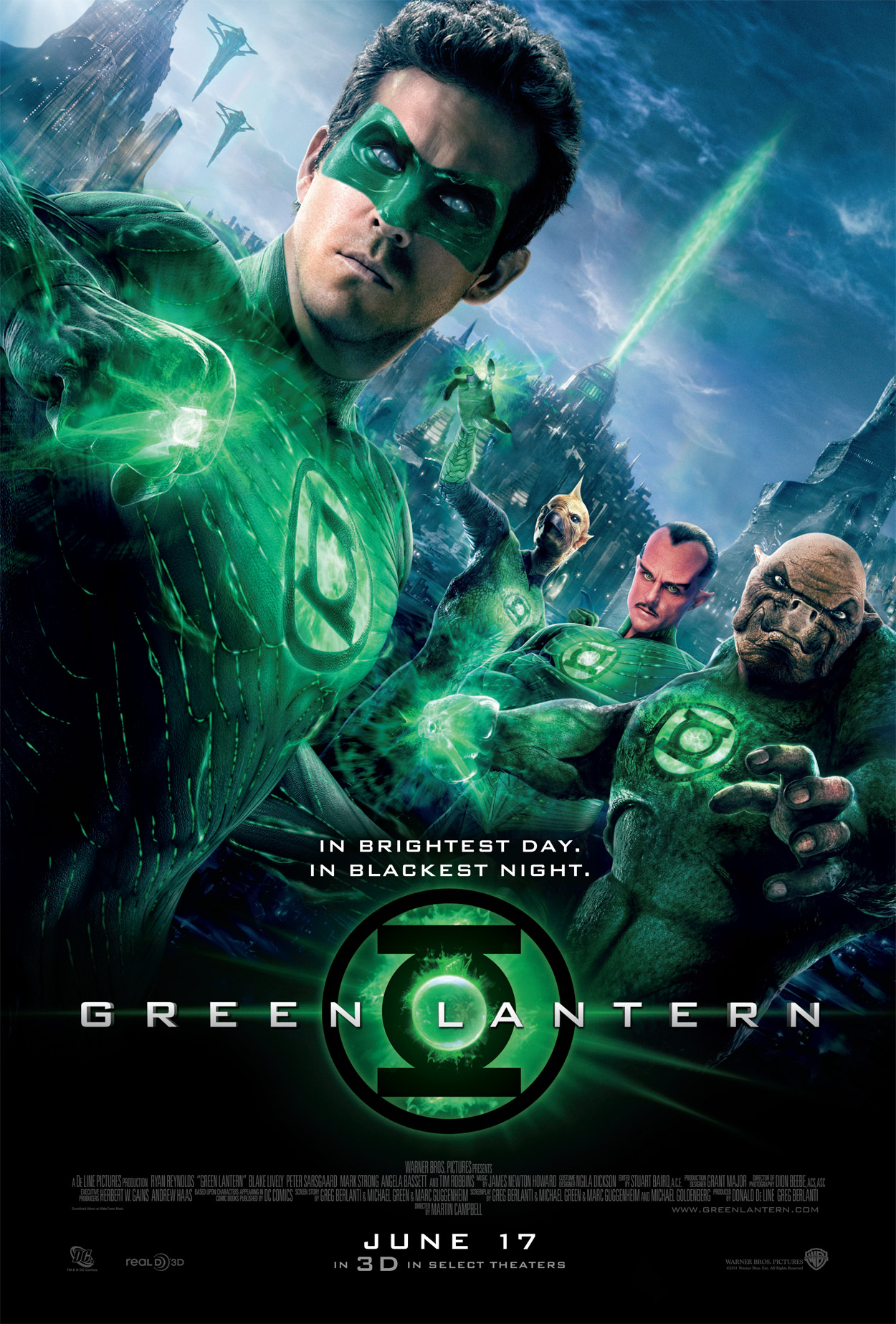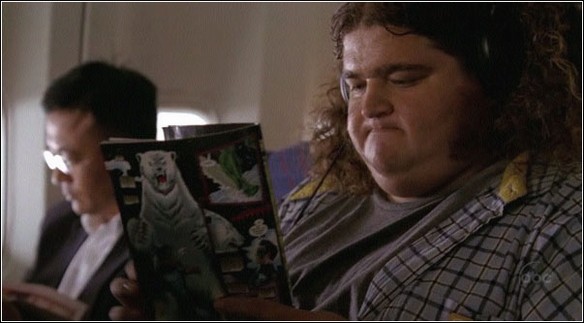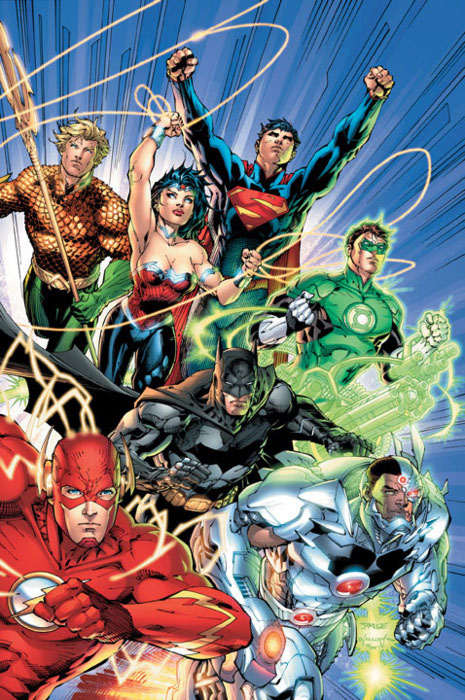True story: after Batman Begins came out, my mom called and asked, “Steven, in the real story of Batman, the Joker killed his parents, right?” To which I replied, “Well, first, we’re going to have to talk about what you mean by ‘real’ ”
On May 31st, DC Co-Publishers Dan DiDio and Jim Lee, with DC Entertainment Chief Creative Officer Geoff Johns, dropped a bombshell; in September, DC Comics is revamping their entire superhero line. All fifty two comic books they publish will be the first issue of a new series, featuring redesigned and updated versions of their familiar characters. Additionally, every superhero comic will be available digitally on the same day as the physical book (Archie Comics is the only other publisher who has done that so far.)
Reaction in the online comics community has been mixed. Some have welcomed the change. Some have declared DC Comics dead to them, seeing the renumbering, redesigns, and digital availability as a snub to the loyal comics collector and the direct market retailers (comic book shops). Most have reacted with snark, calling out the reboot as a sales stunt, one DC has done before; most famously in 1985 with Crisis on Infinite Earths, again in 1994 with Zero Hour, and relatively recently in 2006 with Infinite Crisis: launch a slew of new titles and goose sales of ongoing ones by promising “jumping on points” for new readers who don’t need to know decades of continuity.
You can put me in the camp that welcomes the news. First off, it got written up in USA Today, which only talks about comics when a superhero dies or renounces America. So, yeah, it’s a sales stunt, but it’s one that’s working!
 More importantly, a revamp tied into going digital shows that DC Comics understands a simple truth: the audience for superhero comics is dwarfed by the audience for superheroes in ANY OTHER MEDIUM. DC’s current bestseller Green Lantern sells roughly 75,000 copies a month. If only one hundred times that number sees the movie Green Lantern, it will be considered a failure. Roughly three million people watched the finale of Smallville on the CW, which is about how many bought the video game Batman: Arkham Asylum. And that’s not including the clothes, toys, backpacks, cartoons, coloring books, and Twinkies.
More importantly, a revamp tied into going digital shows that DC Comics understands a simple truth: the audience for superhero comics is dwarfed by the audience for superheroes in ANY OTHER MEDIUM. DC’s current bestseller Green Lantern sells roughly 75,000 copies a month. If only one hundred times that number sees the movie Green Lantern, it will be considered a failure. Roughly three million people watched the finale of Smallville on the CW, which is about how many bought the video game Batman: Arkham Asylum. And that’s not including the clothes, toys, backpacks, cartoons, coloring books, and Twinkies.
The world loves these characters, and might love to read comics about these characters, if they didn’t get the message, loud and clear, that superhero comics are just not for them. Most superhero comics read like micro chapters in a massive epic, which can be exciting for those like me who have been reading comics for the last twenty years .
Hold on, I’m having a moment. Twenty years. Geez….
Anyway, for geezers like me, reading a new comic can be an exciting piece of a larger puzzle, but for the uninitiated it can be like watching fifteen minutes of a mid-third season episode of Lost. Totally mystifying, frustrating, and a little insulting, like you’re somehow to blame for not understanding who McGurk is.

I don’t blame the publishers for this, either. The comics buying crowd have repeatedly shown that they will buy comics they hate but think are “important” over highly praised books that exist on the periphery. (Compare the sales of the critically neutral and widely mocked Brightest Day to those of the universally praised Xombi.) So of course they pander to those that crave continuity and universe altering events instead of story and characters, even as the law of diminishing returns kicks in, and the audience of 200,000 shrinks to 100,000, to 50,000 to who knows what. Revamping the line and offering the books digitally says the current audience just is not enough.
In the short term, yes, going day and date digital will hurt the comics retailers. I’m sure there is a large contingent of comics readers who will stop buying hard copies when they can read comics on their iPad. But there is that MUCH LARGER audience who loves superheroes and isn’t reading comics at all, that might if they are available in a convenient format, and once exposed to the characters, writers, and artists, might seek out other works from those creators, physical copies they can store in their home and decorate their shelves, and in the long term, a larger audience is better for everyone.
To those grousing that rebooting the books and characters is an insult to you, because now your books don’t count, I have two words for you. Grow. Up. We all know you’re not going anywhere. As Marvel Executive Editor Tom Brevoort recently said (admitted?), angry fans are more consistent buyers than apathetic ones, so your threats are pretty much empty.
But furthermore, what does it matter if books “count” or not? There are like five or so different versions of Batman that I love (Timm’s, Morrison’s, Miller’s, Nolan’s, West’s) that are all equally real to me. The best Superman story (best superhero story?) of the last decade was the wildly out of continuity All-Star Superman. If writers and artists need to be free of continuity to tell the stories they want to tell, let them be free and just buy the books you actually enjoy reading.
The major caveat, of course, is that DC actually has to deliver really enjoyable books in that first month, and that’s going to be a challenge. Fifty two books is almost twice the number of titles they currently publish and details have been sketchy. It’s been announced that three quarters of the current titles will get new creative teams, but only one team has been announced, Johns and Lee on Justice League.
Also unclear is the extent of the reboot. Will Superman #1 feature the first day Clark put on the blue tights? Or will he still be married to Lois? Grant Morrison is in the middle of highly entertaining “Batman Incorporated” storyline. Will that get cut short, or will it continue on into the new era? And will the comics DC publishes under their non-superhero Vertigo imprint also be available same day as the physical books?
Until these questions are answered (and there’s supposed to be bigger announcements to come this weekend and next), I remain cautiously optimistic. This may be a giant flop, but it’s a well-intentioned and brave endeavor. So kudos to DiDio, Johns, and Lee for saying comics have to be for everyone; for the kid coming from Saturday morning cartoons, for the dude who really likes Ryan Renolds and wants to know more about this Hal Jordan character, for the woman who always wanted to be Wonder Woman when she grew up. For people who don’t want to search out a comic book store to find the latest issue, and the people who don’t want to learn seventy years of history before they can care about Flashpoint.
It’s time for comics to be for everyone who loves Superman.
Steven Padnick is a comic book editor who loves Superman.










